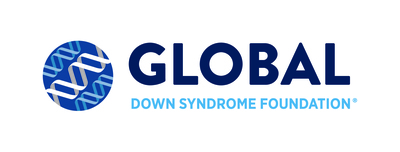Today, the Global Down Syndrome Foundation (GLOBAL) announced that their lead Alzheimer’s scientist and colleagues were awarded a $4.6 million, five-year grant by the National Institutes of Aging to study whether a potential Alzheimer’s disease treatment is safe and effective in improving cognition function in young adults with Down syndrome.
|
DENVER, Oct. 21, 2021 /PRNewswire/ -- Today, the Global Down Syndrome Foundation (GLOBAL) announced that their lead Alzheimer's scientist and colleagues were awarded a $4.6 million, five-year grant by the National Institutes of Aging to study whether a potential Alzheimer's disease treatment is safe and effective in improving cognition function in young adults with Down syndrome. Huntington Potter, PhD, is a professor of neurology, Director of the University of Colorado Alzheimer's and Cognition Center (ACC), and Director of Alzheimer's research at the Linda Crnic Institute for Down Syndrome (Crnic Institute). AAC and Crnic Institute are GLOBAL Affiliates. Dr. Pressman is a behavioral neurologist and assistant professor of neurology. "This is the first clinical trial in years to target cognition in people with Down syndrome," said Dr. Potter. "We are breaking new ground in studying both Down syndrome and Alzheimer's disease, and we hope that this therapy will greatly improve their quality of life. We are so grateful to our affiliate, the Global Down Syndrome Foundation, for making this all possible with their early investment in our clinical trial." In 2016, GLOBAL and the Alzheimer's Association joined forces to fund $1 million for Dr. Potter's Phase II clinical trial of the FDA-approved drug, Leukine®, to determine whether it is safe and can help slow or prevent the progression of Alzheimer's in the general population. The NIH provided another $7.5 million to complete the trial work which may be complete as early as 2026. "We are very proud of Dr. Potter, Dr. Pressman, and all our brilliant scientists at the Crnic Institute and the Alzheimer's and Cognition Center," said Michelle Sie Whitten, President & CEO of GLOBAL. "And we are grateful that they were able to build upon our promising results in the general population, and then be awarded this important research grant that could help our loved ones with Down syndrome." "People with Down syndrome have unfortunately been excluded from a number of previous clinical trials," said Dr. Pressman. "I'm excited to be able to work alongside this underrepresented group of individuals." The grant provides funding to design and complete a clinical trial in adults with Down syndrome using sargramostim, which is a recombinant human granulocyte-macrophage colony-stimulating factor (GM-CSF). GM-CSF is used to help increase white blood cell production in some cases of medical care, including after bone marrow transplantation and after induction chemotherapy in older patients with acute myelogenous leukemia. Previous studies by Dr. Potter and his colleagues have also found that sargramostim treatment is associated with cognitive improvements in leukemia patients. In another clinical trial, Dr. Potter and fellow researchers found that three weeks of sargramostim treatment was safe and well-tolerated in participants with mild-to-moderate Alzheimer's disease. The treatment was associated with improvement in cognition and with reduced biomarkers of neurodegeneration. This new study is focused on quality-of-life improvements for members of the Down syndrome community, who have cognitive challenges and are particularly vulnerable to developing Alzheimer's disease. As they grow older, every person with Down syndrome develops the brain pathology associated with Alzheimer's disease, often beginning during middle adulthood. It is estimated that over 50% will get the early onset of dementia associated with Alzheimer's in their 40s and 50s. Thanks to improved medical care, people with Down syndrome are living longer. In 1983, a person with Down syndrome lived to be only 28 years old on average. Today, the average life expectancy of a person with Down syndrome is nearly 60 years and continuing to climb. A multidisciplinary team at CU Anschutz Medical Campus will study the safety and tolerability of the treatment. "If there is any indication that it is unsafe or not tolerated, the full trial will be stopped," said Dr. Potter. "Safety is central to the execution of this grant." The new trial builds on this previous work and on a laboratory study in which CU researchers, led by Md. Mahiuddin Ahmed, PhD, senior research instructor of neurology, and Dr. Potter, found that GM-CSF reverses cognitive impairment and brain pathology in a mouse model of Down syndrome. About Global Down Syndrome Foundation About the University of Colorado Alzheimer's and Cognition Center About the Linda Crnic Institute for Down Syndrome About the University of Colorado Anschutz Medical Campus
SOURCE Global Down Syndrome Foundation |

